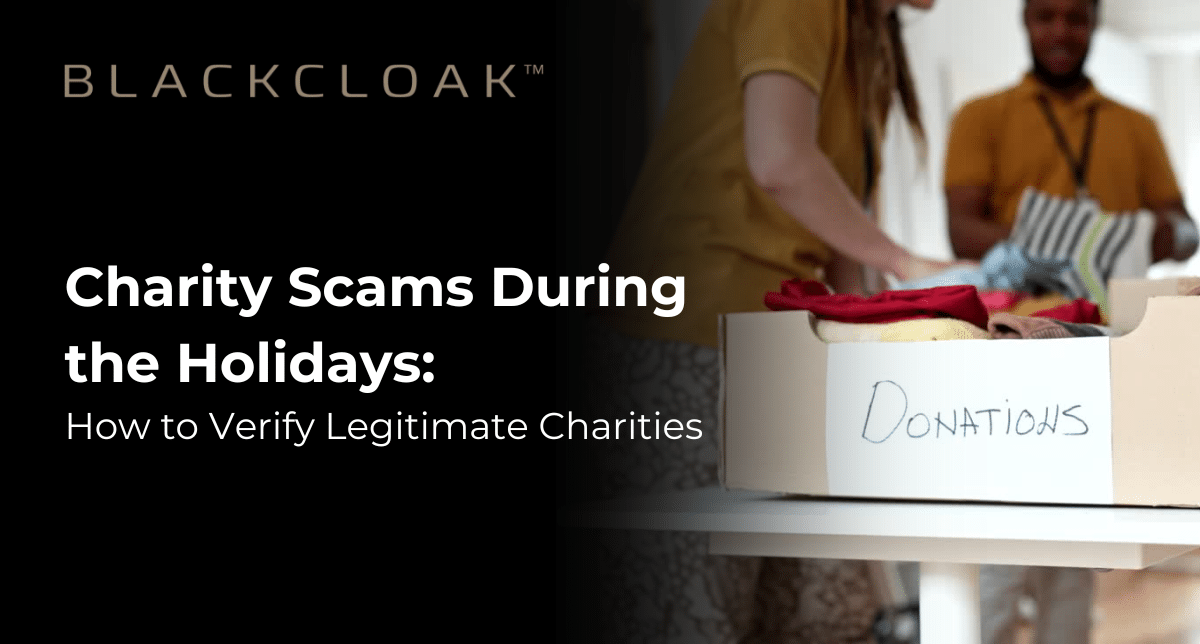Charity Scams During the Holidays: How to Verify Legitimate Charities

The holiday season is a time of giving and generosity, but it’s also a prime time for scammers to take advantage of people’s goodwill. According to the FBI, charity scams increase significantly during the holidays as criminals look to exploit those who wish to donate to a good cause. Here’s how you can verify the legitimacy of charities and protect yourself from falling victim to these scams.
Understanding Charity Scams
Charity scams often involve fake organizations that solicit donations through phone calls, emails, crowdfunding platforms, and social media. These scammers may create copycat websites that mimic legitimate charities, making it difficult for donors to distinguish between real and fake organizations. The goal is to pocket donations meant for charitable causes.
Tips to Verify Legitimate Charities
- Check the Charity’s Credentials: Before making a donation, verify the charity’s credentials by visiting its official website or calling the organization directly. Look for a valid Taxpayer Identification Number (TIN) and ensure the charity is registered with relevant authorities.
- Research the Charity: Use trusted sources such as the Better Business Bureau (BBB) or Charity Navigator to research the charity’s reputation and financial transparency. These platforms provide detailed information about the charity’s mission, programs, and financial health.
- Be Wary of Unsolicited Requests: Scammers often use unsolicited phone calls, emails, or social media messages to solicit donations. Be cautious of requests that come out of the blue, especially if they ask for personal information or immediate payment.
- Avoid High-Pressure Tactics: Legitimate charities will not pressure you into making a donation on the spot. Take your time to research and verify the organization before contributing.
- Look for Secure Payment Methods: When making a donation, use secure payment methods such as credit cards or checks. Avoid sending cash or using wire transfers, as these methods are harder to trace and recover.
- Verify Social Media Pages: Scammers often create fake social media profiles to solicit donations. Verify the authenticity of the charity’s social media pages by checking for official logos, contact information, and reviews from other donors.
FBI’s Advice on Avoiding Holiday Scams
The FBI has issued several warnings about holiday scams, including charity scams. They recommend the following precautions to avoid becoming a victim:
- Verify Websites and Offers: If a deal or offer seems too good to be true, it probably is. Avoid clicking on suspicious links or ads.
- Secure Your Accounts: Use strong, unique passwords for banking, shopping, and rewards accounts. Enable multi-factor authentication for added security.
- Inspect Gift Cards: Check for signs of tampering, such as misaligned packaging or scratched-off security codes.
- Donate Wisely: Verify charities through trusted sources and avoid those soliciting donations via gift cards or wire transfers.
- Be Skeptical of Requests: Government agencies or law enforcement will never demand payments via phone, email, or gift cards.
By following these tips and staying vigilant, you can ensure that your holiday donations go to legitimate charities and help those in need. Remember, if you suspect you are a victim of a scam, report it to your financial institution, local law enforcement, and the FBI’s Internet Crime Complaint Center (IC3) at www.IC3.gov and then turn to BlackCloak to help you protect your profile on an ongoing basis.









